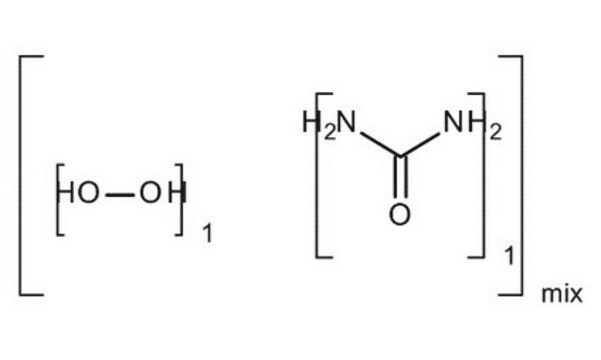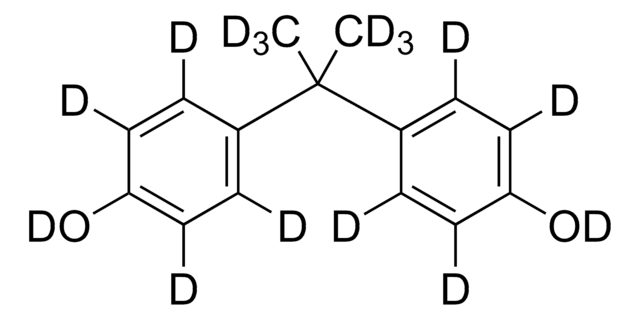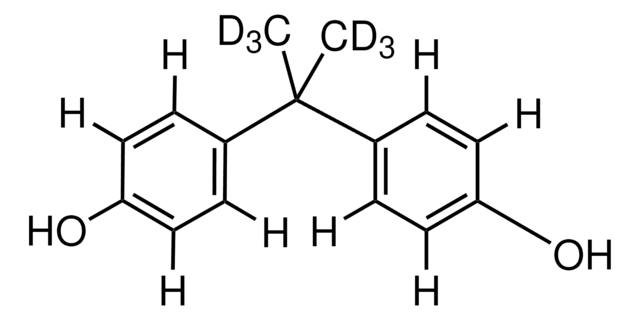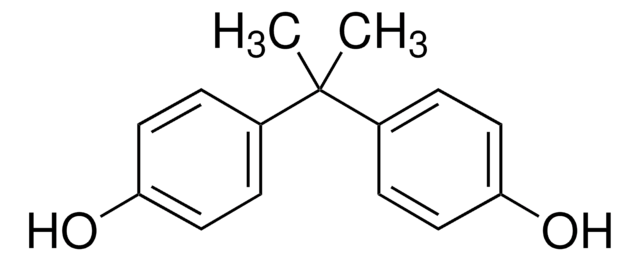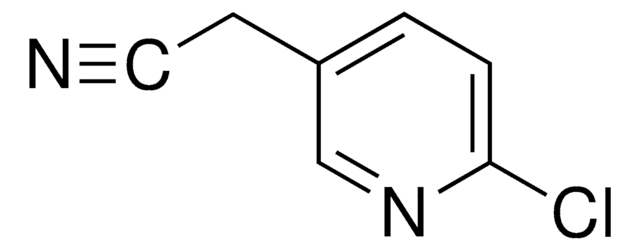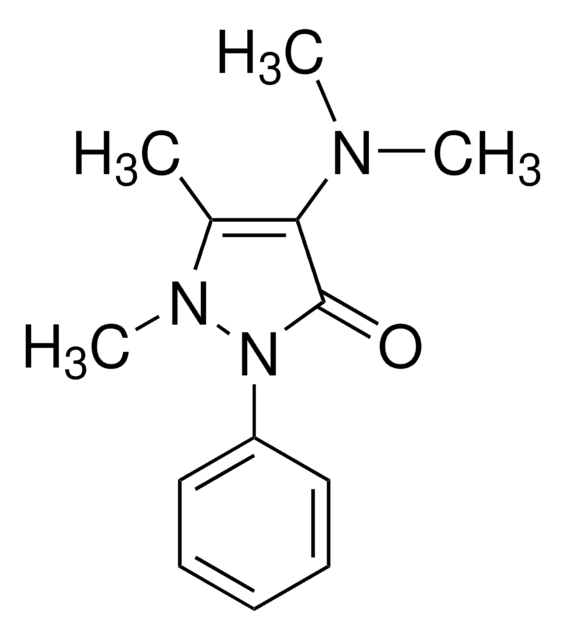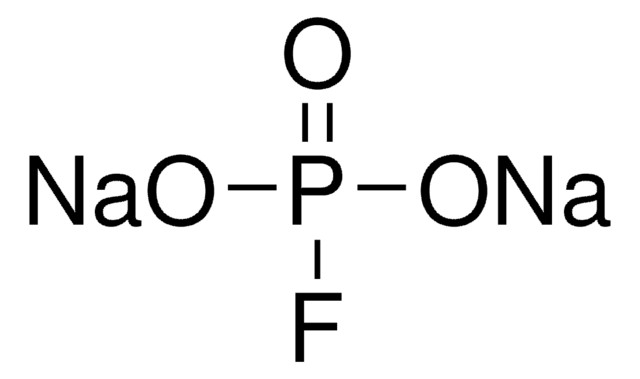289132
Urea hydrogen peroxide
97%
Synonyme(s) :
Hydrogen peroxide–Urea adduct, Carbamide Per hydrate, Carbamide peroxide, Percarbamide, Urea hydrogen peroxide
About This Item
Produits recommandés
Pression de vapeur
23.3 mmHg ( 30 °C)
Niveau de qualité
Essai
97%
Forme
solid
Pertinence de la réaction
reagent type: oxidant
Pf
90-93 °C (lit.)
Groupe fonctionnel
amine
Température de stockage
2-8°C
Chaîne SMILES
OO.NC(N)=O
InChI
1S/CH4N2O.H2O2/c2-1(3)4;1-2/h(H4,2,3,4);1-2H
Clé InChI
AQLJVWUFPCUVLO-UHFFFAOYSA-N
Vous recherchez des produits similaires ? Visite Guide de comparaison des produits
Description générale
Application
- In the conversion of sulfides to sulfoxides or sulfones under solvent free condition.
- In the conversion of nitrogen heterocycles to their corresponding N-oxides.
- In the epoxidation of various alkene in combination with number of carboxylic anhydrides and disodium hydrogen phosphate in anhydrous organic solvents.
- In the Baeyer–Villiger oxidation reaction where in aldehydes and ketones undergo oxidation to produce esters and lactones using various peroxycarboxylic acids.
Caractéristiques et avantages
- Inexpensive.
- Stable.
- Easy handling reagent.
Mention d'avertissement
Danger
Mentions de danger
Conseils de prudence
Classification des risques
Eye Dam. 1 - Ox. Sol. 3 - Skin Irrit. 2
Code de la classe de stockage
5.1B - Oxidizing hazardous materials
Classe de danger pour l'eau (WGK)
WGK 2
Point d'éclair (°F)
Not applicable
Point d'éclair (°C)
Not applicable
Équipement de protection individuelle
Eyeshields, Faceshields, Gloves, type P3 (EN 143) respirator cartridges
Faites votre choix parmi les versions les plus récentes :
Déjà en possession de ce produit ?
Retrouvez la documentation relative aux produits que vous avez récemment achetés dans la Bibliothèque de documents.
Les clients ont également consulté
Notre équipe de scientifiques dispose d'une expérience dans tous les secteurs de la recherche, notamment en sciences de la vie, science des matériaux, synthèse chimique, chromatographie, analyse et dans de nombreux autres domaines..
Contacter notre Service technique
